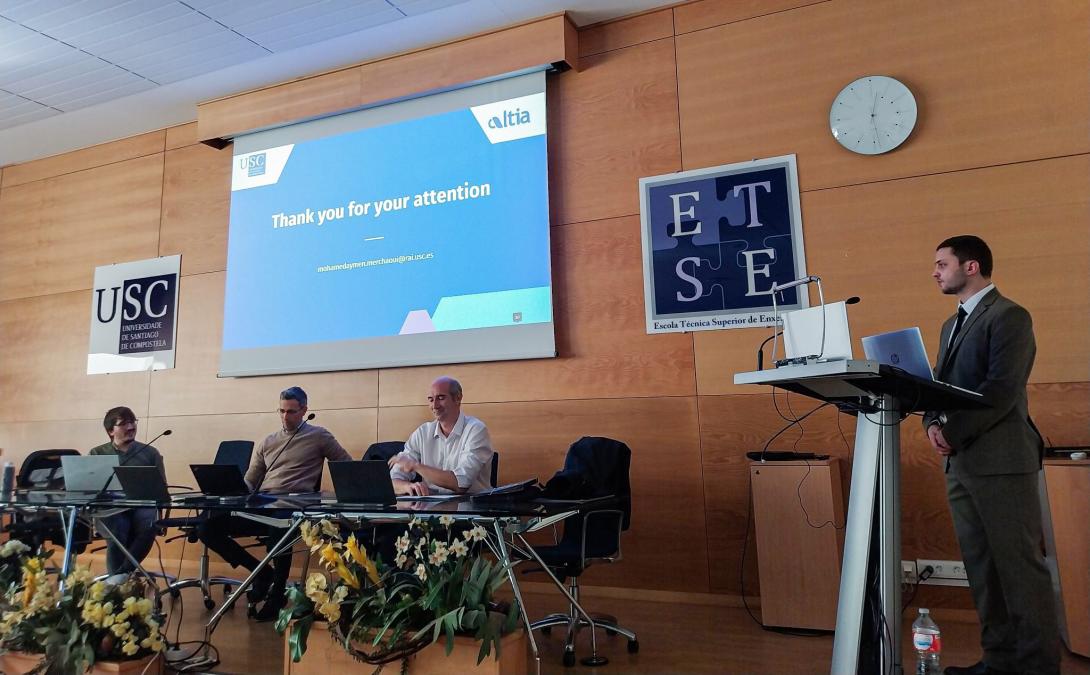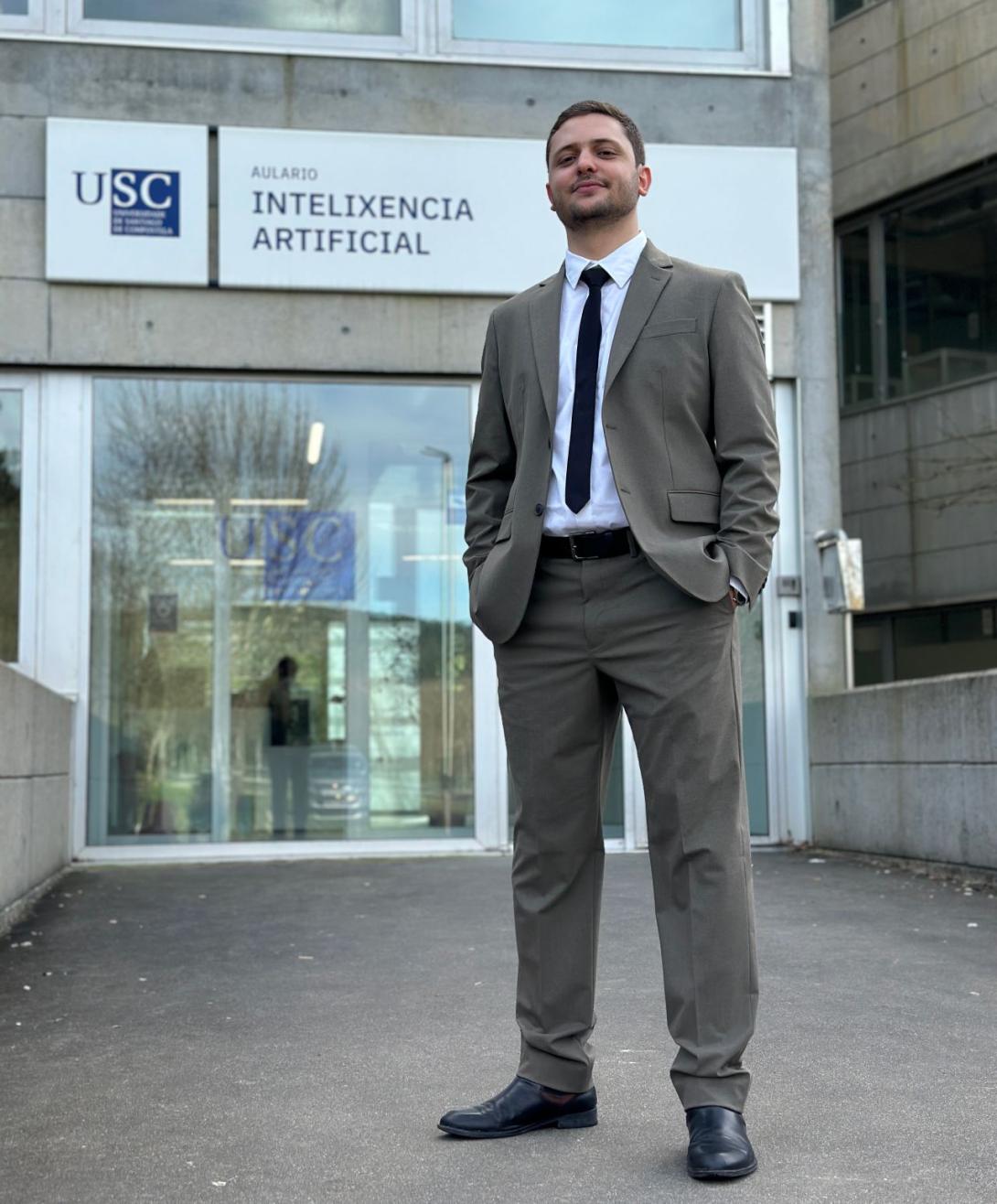
With the advancement of Artificial Intelligence technologies, companies increasingly need professionals trained in this field. This is the case of Aymen, who not only completed the Master's Degree in Artificial Intelligence from the University of Santiago de Compostela , but also earned a 9 out of 10 on his Master's Thesis, a project he completed in collaboration with Altia, and is now part of the team as an Artificial Intelligence Engineer.
Through this TFM titled “ Developing an OCR+NER solution to extract information from invoices ”, Aymen created and developed a system that uses computer vision and natural language processing (NLP) techniques to extract text from invoices and detect important information, such as supplier names, dates and other relevant data.

Aymen Merchaoui · Artificial Intelligence Engineer
How did Artificial Intelligence play a role in this project?
“The AI-related aspects I covered most in the project were computer vision, natural language processing (NLP), and multimodal models for named entity recognition (NER). I also used OCR (Optical Character Recognition) techniques to extract text from invoice images and NER methods .”
“A key component of my work was the use of LoyoutIM, a multimodal model that combines textual and positional information to predict labels. This model stands out for its ability to understand not only the textual content but also the spatial arrangement of elements on the invoice, which is crucial for accurately capturing the structure and context of the information.”
What was the experience of developing this work with us?
“My experience working with Altia on this project was excellent. From the beginning, I received tremendous support from the Altia team, who gave me access to the tools I needed for my work. I especially want to thank Pablo Méndez for his guidance and leadership throughout the project. His experience was crucial to the success of the project. I also want to thank Nerea, my colleague, for her constant collaboration. Working together was a very valuable experience that greatly improved the final results.”
What aspects would you highlight about having collaborated with a company like Altia?
“It was a very beneficial experience in several important ways. I had the opportunity to be in a real business environment, which helped me understand how AI technologies are used in everyday work. Additionally, I was able to not only think of technical solutions but also implement them in real-life projects. This gave me a broader perspective on practical challenges and best practices in AI.”
How do you expect your training in Artificial Intelligence to contribute to your professional development?
“I hope my training will allow me to apply innovative solutions to complex problems in the professional field. I look forward to using my skills to improve processes, optimize business decisions, and develop advanced technological products. I also hope to be prepared to face emerging challenges in the field of AI and contribute to Altia's growth.”
At Altia, we actively collaborate with educational institutions to contribute to the training of future professionals. We believe this partnership is necessary and benefits both stakeholders. In this case, collaborating with a master's program focused on AI, an area with such potential for expansion, is vitally important. Pablo Méndez, Director of Artificial Intelligence at Altia, emphasizes that, in addition to the satisfaction of helping students acquire a more practical vision of AI than an academic one—with a product focus—it represents a great opportunity to attract talent emerging from our universities to join our teams.
“Internships with companies represent a shift in focus, moving from academic problems where theory is learned to creating solutions for real customer problems. Students discover how these solutions are developed in a company, joining our AI development teams. Creating real-world solutions isn't just an algorithm trained on a notebook; it's a product that can be deployed as an API in production, which must be ready to scale, must pass quality and load tests, and so on,” Pablo explains.




